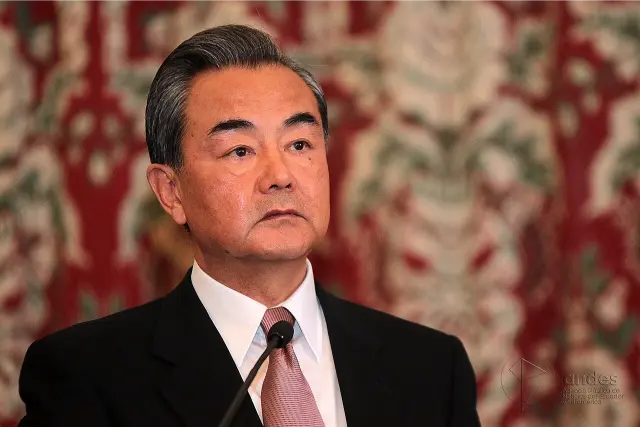Palestinian factions have signed a “national unity” agreement aimed at maintaining Palestinian control over Gaza once Israel’s war on the enclave concludes.
The deal, finalized on Tuesday in China after three days of intensive talks, lays the groundwork for an “interim national reconciliation government” to rule post-war Gaza, said Chinese Foreign Minister Wang Yi.
The agreement was signed by long-term rivals Hamas and Fatah, as well as 12 other Palestinian groups.
“Today we sign an agreement for national unity and we say that the path to completing this journey is national unity,” said senior Hamas official Mousa Abu Marzouk at a news conference in Beijing.
But critics say the agreement is empty of substance and if history is any indicator, this agreement will not result in true progress or reconciliation.
The past reconciliation attempts between Hamas and Fatah have been marked by numerous efforts to bridge the deep political and ideological divide between the two major Palestinian factions. One of the earliest significant attempts was the Mecca Agreement in 2007, brokered by Saudi Arabia, which aimed to create a national unity government.
However, this effort quickly collapsed, leading to violent clashes and the eventual split, with Hamas taking control of Gaza and Fatah governing the West Bank.
In subsequent years, multiple agreements have been made but failed to yield lasting unity.
The Cairo Agreement in 2011 was another major attempt, with Egypt playing a key mediating role, but its implementation was stymied by disagreements over power-sharing and control of security forces.
Similarly, the Doha Agreement in 2012, facilitated by Qatar, aimed to pave the way for elections and a unified government, but it also did not materialize into concrete steps towards reconciliation.
The 2014 Gaza Agreement, often referred to as the Beach Refugee Camp Agreement, promised the formation of a technocratic unity government.
While this led to some initial optimism, persistent issues, such as control over security and border crossings, prevented full implementation.
More recently, efforts in 2017, including renewed Cairo talks, resulted in agreements to transfer administrative control of Gaza back to the Palestinian Authority. However, these efforts have been hampered by mutual distrust, ongoing violence, and external pressures, leading to repeated setbacks.
Throughout these attempts, the core issues remain deeply entrenched: ideological differences, competition for political legitimacy, and external influences from regional and international actors.
Despite these numerous reconciliation efforts, the divisions between Hamas and Fatah continue to pose significant challenges to achieving lasting Palestinian unity.
Furthermore, Hamas’s designation as a terrorist organization by the United States, the European Union, and other countries complicates international relations and casts doubt on the legitimacy of any government that includes Hamas without a clear renunciation of violence and recognition of Israel.
China’s involvement in brokering the recent agreement between Fatah and Hamas stems from its growing interest in the Middle East and its desire to play a more significant role in international diplomacy.
Officially, China has framed its mediation efforts as part of its broader strategy to promote peace and stability in the region. Beijing emphasizes its commitment to supporting the Palestinian cause, advocating for a two-state solution, and fostering unity among Palestinian factions to strengthen their position in negotiations with Israel.
China’s approach aligns with its broader geopolitical ambitions, seeking to expand its influence and counterbalance the traditional dominance of the United States in Middle Eastern affairs. By facilitating dialogue between Fatah and Hamas, China aims to present itself as a neutral and constructive player capable of bridging divides and contributing to regional peace.
Critics, however, have raised concerns about China’s motives. Some argue that China’s primary interest lies in securing its economic and strategic interests in the Middle East, particularly through its Belt and Road Initiative.
Critics also point to China’s own domestic policies, particularly its treatment of Uyghur Muslims, as inconsistent with its professed support for Muslim populations abroad. They suggest that China’s involvement might be more about expanding its influence and gaining political leverage rather than genuinely fostering lasting peace between the Palestinian factions.
Additionally, some skeptics question whether China’s diplomatic efforts can succeed where many others have failed, given the deep-rooted issues and mutual distrust between Fatah and Hamas.
The long history of failed reconciliation attempts casts doubt on the potential for a breakthrough, even with Chinese mediation.
Like everything else in the Middle East, only time will tell.
